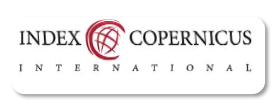Productive Zakat and Distribution Strategies in Improving the Welfare of Mustahik at LAZ DT. Peduli North Sumatera
DOI:
https://doi.org/10.22515/finalmazawa.v6i1.10522Abstract
The distribution of zakat does not only emphasize distribution strategy as consumptive, but also emphasizes more effective and productive distribution strategies. The productive zakat distribution strategy is an effort to improve the welfare of mustahik. This study aims to describe the distribution strategy of productive zakat and the effect of the distributions on the welfare of mustahik. This research was describes the zakat distribution strategy and the impact of distribution on the welfare of the mustahik. The research was conducted at the LAZ DT Peduli North Sumatra, is a type of descriptive qualitative research with testing procedures that are carried out in depth using purposive testing procedures. The procedure for the validity of information uses triangulation. Data analysis in this study uses reduction, data presentation, and conclusion drawn. The test of this research is mustahik who is the beneficiary of Profitable Zakat. Sources of information obtained from program management and staff's and profitable zakat in LAZ DT Peduli North Sumatra. The result showed that the effect of profitable zakat dispersion technique on the level of mustahik welfare is very critical. Based on the level of welfare of mustahik, beneficial zakat mustahik have been able to meet daily needs, have a permanent job, can get wellbeing offices, have a better than average put to live, the normal mustahik's wage has expanded by 63.38% and has been able to create a sustainable business.
Downloads
References
Al-Haritsi, J. bin A. (2020). Fikih Ekonomi Umar bin Al-Khathab. Jakarta: Library
Annual Report, LAZ DT Peduli North Sumatra
Ash-Shallabi, Muhammaad Ali. (2007). The Biography of Umar bin Abdul Aziz. Jakarta: Al-Kautsar Library.
Chapra, M. Umer. (2001). The Future of Economics: an Iskamic Perspective. (Translated by Amdiar et al: The New Landscape of the Future Economy, Jakarta: SEBI)
Company Profile, LAZ DT Peduli North Sumatra dtpeduli.org/legal-formal
ibec.febui.com
Key Performance Indicator, LAZ DT Peduli North Sumatra
Mubarak, Darihan. (2019). Philanthropy; Islamic Economic System Since the Time of the Prophet. (republika.com)
Mufraini, Arif. (2006). Accounting and Zakat Management. Jakarta: Kencana Prenanda Media Group.
Muliawato, Sri. (2020). The Effect of Productive Zakat Fund Distribution on Mustahik's Income Level (Case Study at the National Amil Zakat Agency of Medan City). (Student Thesis of Development Economics, University of North Sumatra)
Nazarudin. (2018). Strategic Management. Mold 1, Noer Fikri, Palembang regulation.bpk.go.id
Priantina A and Fitriani WF. (2016). Problem Solving Analysis of Productive Zakat Program. Al-Muzara'ah Journal Vol.4, No.2.
Qadir, Abdurrachman. (2001). Zakat (in Mahdah and Social Dimensions). Jakarta: Raja Grafindo Persada.
Sodiq, Amirus, (2015). "The Concept of Welfare in Islam", Equilibrium, Volume 3, Number 2, pp. 388, Kudus.
Sugiyono. (2013). Quantitative Qualitative and R&D Research Methods, Bandung: Alfabeta.
Zalikha, Siti. 2016. Productive Zakat Distribution in Islamic Perspective. Futura Scientific Journal, Vol.15. No.2
Downloads
Submitted
Accepted
Published
How to Cite
Issue
Section
License
Copyright (c) 2025 Rama Dani

This work is licensed under a Creative Commons Attribution-ShareAlike 4.0 International License.




















